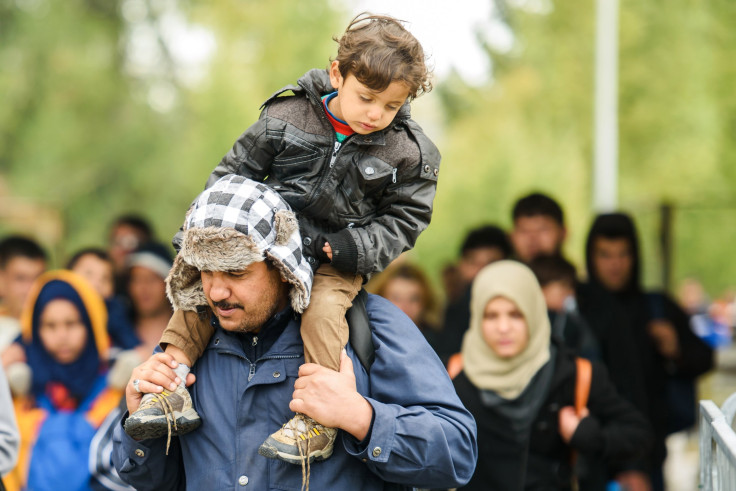Refugee Crisis Europe Update 2015: Balkans Route Continues To Narrow In Slovenia

Slovenia will allow 2,500 refugees to cross its borders daily, the country's minister of the interior said Sunday, according to a BBC report. Refugees continue to surge into tiny Slovenia by the hundreds as the gates to Hungary remain closed.
Neighboring Croatia called on Slovenia to take 5,000 people a day, but Slovenia's interior minister said that the small Central European country could not take that many, since only 1,500 were allowed to travel north each day into Austria, creating a bottleneck at the border. Minister Bostjan Sefic said Slovenia "cannot accept unlimited numbers of migrants if we know that they cannot continue their journey," during a news conference Sunday.
More than half a million refugees have arrived in the European Union since January, making 2015 a record-breaking year for migration. Escalating conflicts in North Africa and the Middle East have caused the number of people seeking asylum in Europe to soar. Nearly 60 percent of all refugees are Syrians, where a devastating civil war has killed hundreds of thousands of people and displaced 7 million, according to the United Nations.
Slovenia receives refugees after Hungary border closure http://t.co/7HtCHBtBhD pic.twitter.com/3UzIoaQFIA
— AJE News (@AJENews) October 18, 2015Migration experts referred to the route that counts Hungary as one of its transit countries as the Balkan Route, a path that took refugees from Syria to Turkey, up through the Balkan countries and into the rest of Europe. The path is considered much safer than the dangerous Mediterranean or Aegean sea crossings where refugees travel in small, overcrowded rubber dinghies across the sea to reach Italy or Greece, where there are frequent drownings when boats capsize.
When thousands of refugees crossed into Hungary every day, the nation began sealing its borders over the summer, most recently erecting a tall barbed-wire fence on the border with Croatia on Saturday. The closed borders have pushed asylum seekers to cross through Slovenia.
Refugees want to pass through Slovenia on their way to Western European countries, where they will seek asylum. Local authorities have said they will continue to allow them to do so, but they warn the strain on resources -- both food and lodging -- may overwhelm the country's population of 2 million.
© Copyright IBTimes 2024. All rights reserved.





















